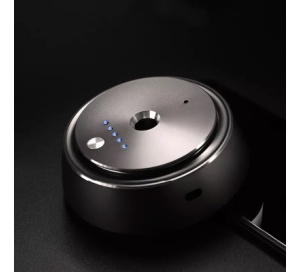Basics of Essential Oils

What are essential oils?
Essential oils are concentrated plant extracts that have been turned into oils. The word essential refers to "essence-of"; it takes 220 pounds of lavender flowers to make one pound of lavender oil, which is why essential oils are often diluted before use.
Specific oils are often chosen to elicit certain emotions, like lavender for relaxation or lemon for uplifting your mood. Essential oils are commonly used in aromatherapy and massage therapy.
How are essential oils made?
Essential oils are made through mechanical pressing (expression) or distillation. Different oils use different parts of the plant, including the bark, leaves, roots, flowers, and peel.
In cold pressing, these plant parts become essential oils due to mechanical pressure that forces the oil out of the materials. This method is used to press citrus oils from the fruit’s rind. For example, lemon, lime, and orange essential oils are made from pressed peels.
In steam distilled essential oils, steam is forced through the plant material and then condensed to form a mix of essential oils and water that can then be separated because the oil floats. This is a common method used for most essential oils, including peppermint and lavender.
Who uses essential oils?
Essential oils are commonly used in aromatherapy. Aromatherapists select oils to fit your symptoms and then apply them to your skin or ask you to inhale them. Massage therapists and masseuses may also use essential oils to enhance your relaxation experience during a massage. Additionally, some nurses and doctors use essential oils as part of complementary alternative medicine. Plus, many people use essential oils at home too.
Essential Oils Research and Safety
How do essential oils work?
Essential oils used in aromatherapy are thought to work by stimulating scent receptors in the nose. These receptors then send messages through your nervous system to your limbic system. Your limbic system controls your emotions and is thought to then react depending on the specific oil’s scent.
What does essential oils research say?
Several studies have looked at the benefits of specific essential oils and their effect on participants. One study found that lemon oil reliably enhanced mood and made participants feel more positive compared to lavender oil (typically used for a calming effect) and water.
Another quantitative review examined the results from fifteen different studies on the effects of inhaled essential oils on sleep research subjects. Researchers found that in the majority of studies essential oils had a positive effect on sleep and helped with mild sleep disturbances. The most frequently studied essential oil was lavender, though other oils were also used.
Looking beyond mood, essential oils may also have a place in the medical field for antibiotic purposes. A 2004 study found that a combination of citricidal (grapefruit seed extract) and geranium oil was the most effective antibacterial essential oil mix against MRSA, while geranium and tea tree oil was most effective against methicillin-sensitive S. aureus (Oxford strain). This study suggests that certain essential oils may be useful as antibacterial agents as well.
Overall, some essential oils have research that supports their benefit claims, while others need further studies to confirm their reported benefits.
Are essential oils safe?
Be sure to talk to a medical professional and read the product’s label to make sure essential oils are the right choice for you. In general, essential oils are safe if you follow basic guidelines.
* Don’t swallow essential oils or take them orally.
* Don’t inhale or rub essential oils on yourself while pregnant or on babies or children.
* Some oils make your skin more sensitive to sunlight - cover up and avoid direct sun when using those oils.
* Always dilute essential oils before use
* Do a skin test on a small area of skin before using new oils.
* Stop using essential oils if they are irritating your skin (itching, rash, etc.)
* Don’t overuse essential oils.
* Talk to a medical professional before use.
* The ASPCA Animal Poison Control Center warns to be careful when using essential oils around your pets.
* Use oils in a secured area your pets can’t access.
* Don’t use them if you have birds or pets with a history of respiratory problems.
* Ask your veterinarian how to keep your pets safe when using essential oils.


- 1


 Español
Español 










